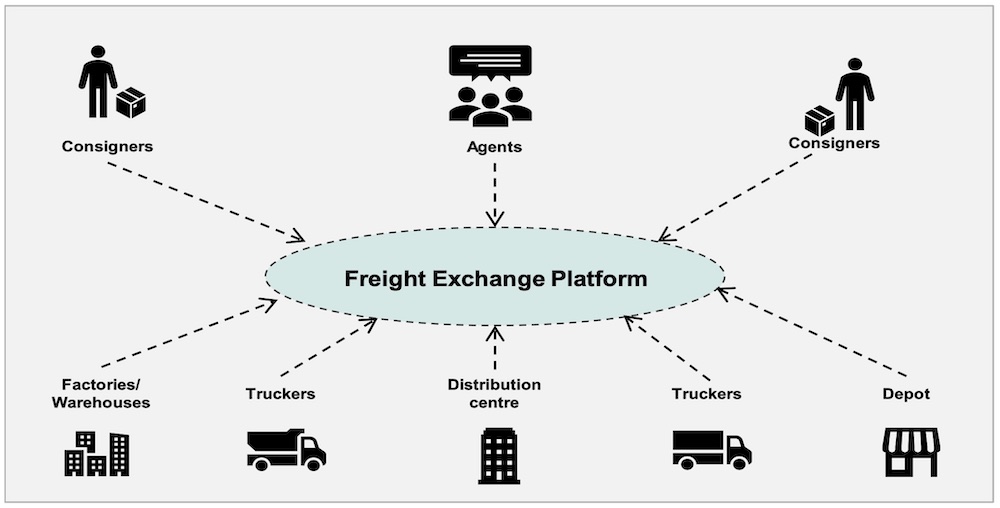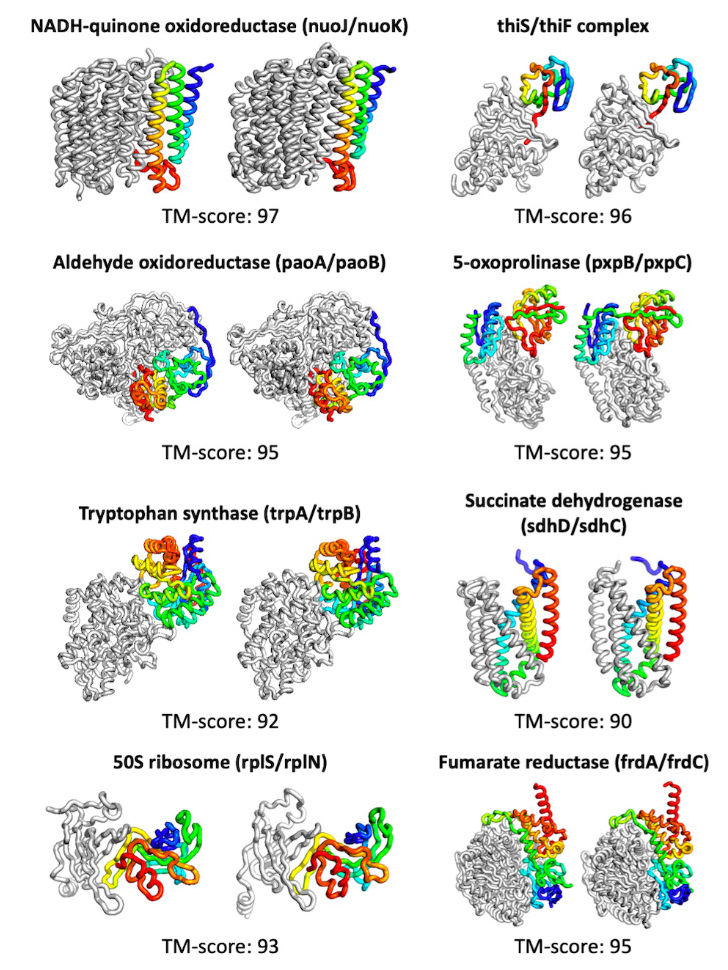- July 15, 2021
- by:
- in: Blog
Disrupt 2021 stands to be the best Disrupt yet. We have an incredible lineup of speakers both on the Disrupt Stage and the Extra Crunch Stage. And, of course, we can’t forget the Startup Battlefield, which has been a launch pad for some of the biggest tech companies in the world today, including Dropbox, Mint,
Disrupt 2021 stands to be the best Disrupt yet. We have an incredible lineup of speakers both on the Disrupt Stage and the Extra Crunch Stage. And, of course, we can’t forget the Startup Battlefield, which has been a launch pad for some of the biggest tech companies in the world today, including Dropbox, Mint, and Cloudflare.
Today, we’re excited to give you a closer look at the Disrupt Stage, where the biggest names in tech talk about their companies, their plans, and what’s next for the greater tech ecosystem.
And this is just the tip of the proverbial iceberg when it comes to the three jam-packed days we’re planning for you at Disrupt. Along with these heavy hitters on the Disrupt Stage, you can get your founder how-to knowledge at sessions on the Extra Crunch Stage, breakout sessions and intimate roundtable discussions. You’ll be able to find and engage with people from all around the world through world-class networking on CrunchMatch and our virtual platform — all for under $100 for a limited time with even deeper discounts for non-profit/government agencies, students and up-and-coming founders!
So without any further ado, check out the current agenda for the Disrupt Stage:
HEALTH/BIOTECH
Saving the World with Ugur Sahin (BioNTech) and Ursheet Parikh (Mayfield Fund)
COVID-19 changed everything. It not only threatened our individual health and well being, but shook industries and economies across the globe. But the same could be said about the COVID-19 vaccines. Hear from BioNTech cofounder and CEO Ugur Sahin on the process of rapidly developing the world’s most sought after vaccine, alongside Pfizer, and the long-term potential of mRNA-based therapies. Sahin will be joined by Ursheet Parikh of Mayfield Fund to discuss what’s next for startups in this rapidly evolving industry.
Democratizing Healthcare with Toyin Ajay (Cityblock Health), Adrian Aoun (Forward), and Eren Bali (Carbon Health)
It’s no secret that the current healthcare system in America is broken. Technology stands to make a huge difference, especially in the backdrop of eased regulations due to COVID-19. Hear how startup founders from Forward, Carbon Health and Cityblock Health decided to tackle the behemoth, backward industry of healthcare, as well as talk through their plans to democratize access and digitize the industry.
Pot, Pottery and Beyond with Seth Rogan (Houseplant), Haneen Davies (Houseplant), and Michael Mohr (Houseplant)
Somehow we live in world where alcohol is sold in grocery stores and weed is considered a gateway drug. But that is rapidly changing. The legalized cannabis industry is estimated to be worth more than $13 billion in 2021, and major players from big food, pharma, etc. all want a slice of the pie. Hear from actor and comedian Seth Rogan on his well-known passion for pot, and how it led him to start Houseplant. Rogan will also be joined by Houseplant chief commercial officer Haneen Davies and cofounder and CEO Michael Mohr.
The Disrupt Desk
Industry experts and TechCrunch editors break down the panels you missed with analysis, insight, and likely a laugh or two.
Startup Battlefield Competition – Session 1
TechCrunch’s iconic startup competition is back, as entrepreneurs from around the world pitch expert judges and vie for the Startup Battlefield Cup and $100,000
IMPACT
From ABC’s to IPO with Luis Von Ahn (Duolingo)
Language learning company Duolingo was founded in 2011 and has raised more than $167 million in private capital, and recently filed to go public. Despite avoiding monetization for years, the startup saw revenue growth of 120+ percent in 2020, with no signs of slowing. CEO and cofounder Luis Von Ahn will join us on the Disrupt stage to talk about gamifying education, prepping for a public offering, and how he and the team built the anti-Rosetta Stone with an owl as a mascot.
The Disrupt Desk
Industry experts and TechCrunch editors break down the panels you missed with analysis, insight, and likely a laugh or two.
Startup Battlefield Competition – Session 2
TechCrunch’s iconic startup competition is back, as entrepreneurs from around the world pitch expert judges and vie for the Startup Battlefield Cup and $100,000
FINTECH
Collecting Crypto Opportunities with Roham Gharegozlou (Dapper Labs)
Dapper Labs launched the digital collectible craze into the mainstream earlier this year with its smash hit NBA Top Shot, but even amid sinking NFT sales, CEO Roham Gharagozlou has big ambitions for the space. His startup most recently hit a $7.5 billion valuation and has aims to own the NFT ecosystem with their Flow blockchain product.
Breaking the Bank with Brian Armstrong (Coinbase)
Coinbase’s massive direct listing earlier this year couldn’t have come at a better time as peaking crypto enthusiasm reached market exuberance, but now amid a major market correction, CEO Brian Armstrong is once again tasked with building for the future and navigating volatility while fending off global competitors knocking at their door.
The Disrupt Desk
Industry experts and TechCrunch editors break down the panels you missed with analysis, insight, and likely a laugh or two.
ENTERPRISE/SAAS & SECURITY
Staying a Step Ahead with Rinki Sethi (Twitter)
In 2020, in the midst of an already-frantic year, Twitter was breached in a very public way. Behind the scenes, Twitter spends a tremendous amount of time, money, and energy on user protection and platform integrity. A big part of that is through information security. CISO Rinki Sethi will join us at Disrupt to talk through how Twitter tries to stay ahead of malicious actors, and how tech companies large and small can do the same.
From Bootstrapped to Billions with Tope Awotona (Calendly)
Dozens have tried to reinvent the calendar, and dozens have failed. Tope Awotona built Calendly not as a way to reinvent the wheel, but to add a layer of simplicity to the chaos of human communication and time management. And boy did it work! The once-bootstrapped company is now worth more than $3 billion, serving individuals and enterprises alike. Hear from the founder and CEO on how he got Calendly off the ground, why he decided to finally take institutional investment, and how the company has changed as it grows.
Startup Battlefield Competition – Session 3
TechCrunch’s iconic startup competition is back, as entrepreneurs from around the world pitch expert judges and vie for the Startup Battlefield Cup and $100,000
An Unstoppable Force and an Immovable Object with Stewart Butterfield (Slack) and Bret Taylor (Salesforce)
Slack and Salesforce are two of the biggest names in all of tech. The communication tool (born from one of the odder pivots in tech history) is commonplace across organizations from almost every industry. It’s an unstoppable force. The sales CRM behemoth is used all over the world by sales teams small and large. An immovable object. In December of 2020, the pair announced a $27.7 billion merger. Hear from Slack founder and CEO Stewart Butterfield and Salesforce President and COO Bret Taylor about the future of the combined entity, why the deal made sense, and what it’s like to write down that many 0’s.
Dogmatic Design with Melanie Perkins (Canva)
The rapid evolution of the design industry can’t be understated. From better collaboration among designers and other departments, to collaboration among designers themselves, to the democratization of design across an organization, the landscape is changing. Canva has led the charge in this evolution, building one of the simplest (and yet full-featured) tools on the market. Hear cofounder and CEO Melanie Perkins talk about scaling the business to now be worth upwards of $15 billion, and expanding the business from B2C to B2B, all while continuing to iterate the product.
The Disrupt Desk
Industry experts and TechCrunch editors break down the panels you missed with analysis, insight, and likely a laugh or two.
Startup Battlefield Competition – Session 4
TechCrunch’s iconic startup competition is back, as entrepreneurs from around the world pitch expert judges and vie for the Startup Battlefield Cup and $100,000
HARDWARE
Reflecting on Success with Brynn Putnam (MIRROR)
Mirror cofounder and CEO Brynn Putnam first hit the Disrupt Stage years ago to launch her idea for a better, more beautiful, fitness product. This year, she’s returning to our stage to talk through the ups and downs of building a hardware product, how she manages the variety of moving pieces of this business (from the instructor network, to the content and subscription business, to sales and marketing, etc.) and walk us through the company’s $500 million acquisition by Lululemon.
A Fictional Future Built with Real AI with Kai-Fu Lee (Sinovation Ventures) and Chen Quifan (World Chinese Science Fiction Association)
A leading mind in AI research and investment and a bold new voice in science fiction collaborate in “AI 2041,” a remarkable new collection of stories imagining a future shaped by technology being built today. Hear Sinovation Ventures Chairman and CEO Kai-Fu Lee and author Chen Quifan (AKA Stanley Chan) discuss the tech that inspired their book and the changes they expect over the next two decades.
Drones, Self-driving Cars, and Everything in Between with Secretary of Transportation Pete Buttigieg (U.S. Department of Transportation)
Pete Buttigieg first came on the scene as a small town Mayor in Indiana. He launched onto the national stage as a presidential candidate for the Democratic party in 2020. He now serves as Secretary of Transportation under the Biden administration, and oversees everything from public transport to autonomous vehicle regulation. Hear Secretary Buttigieg’s take on micromobility, the future of cities, drone delivery, autonomous vehicles and more in this fireside chat.
Crafting a Lunar Trajectory in Newspace with Peter Beck (RocketLab)
Rocket Lab has upgraded its ambitions from building a global launch empire to designing its own spacecraft and visiting the Moon and beyond. Founder and CEO Peter Beck will speak to the challenges and opportunities lying ahead for his fast-growing space and tech outfit.
The Disrupt Desk
Industry experts and TechCrunch editors break down the panels you missed with analysis, insight, and likely a laugh or two.
VENTURE CAPITAL
Bankrolling Web 3.0 with Katie Haun (Andreessen Horowitz)
At $2.2 billion, Andreessen Horowitz’s third crypto-centric fund is their largest vertical-specific bet ever and a signal of just how crucial blockchain tech and decentralized finance is to the firm’s future. General Partner Katie Haun co-leads the crypto team tasked with tracking down the firm’s next Coinbase, which returned billions for the firm.
Checking In with Chris Sacca (Lowercarbon Capital)
Chris Sacca has been a judge on “Shark Tank” and appeared on the show “Billions.” But he’s best known for sharing his opinions on Twitter, a company in which he invested early and often, and for placing a wide range of other hugely successful bets, including Uber, Instagram and Twilio. Now, at his newest firm, Lowercarbon Capital, Sacca is focusing his attention and dollars on finding and funding solutions to climate crisis, and we’re excited to talk with him about where he’s seeing the most opportunity bubbling up in this fireside chat.
Speaking SPAC with Chamath Palihapitiya (Social Capital)
Chamath Palihapitiya, founder and CEO of Social Capital, is one of the world’s most well-regarded and respected investors, and has been at the forefront of the recent SPAC craze. Hear Palihapitiya’s thoughts on the future of SPACs, what tech sectors are primed for a boom, and what excites him most in terms of future investments.
The Disrupt Desk
Industry experts and TechCrunch editors break down the panels you missed with analysis, insight, and likely a laugh or two.
Startup Battlefield Competition – Final Round
TechCrunch’s iconic startup competition is back, as entrepreneurs from around the world pitch expert judges and vie for the Startup Battlefield Cup and $100,000
MEDIA & ENTERTAINMENT
Esports Everywhere with Nicole LaPoint Jameson (Evil Geniuses)
The pandemic not only spurred the growth of gaming as a hobby, but gave an extra boost to the world of esports. Hear Evil Geniuses’ CEO Nicole LaPoint Jameson outline where esports is headed, how data and technology are driving the players, teams, leagues and beyond, and what opportunities lie in this ever-growing industry.



















